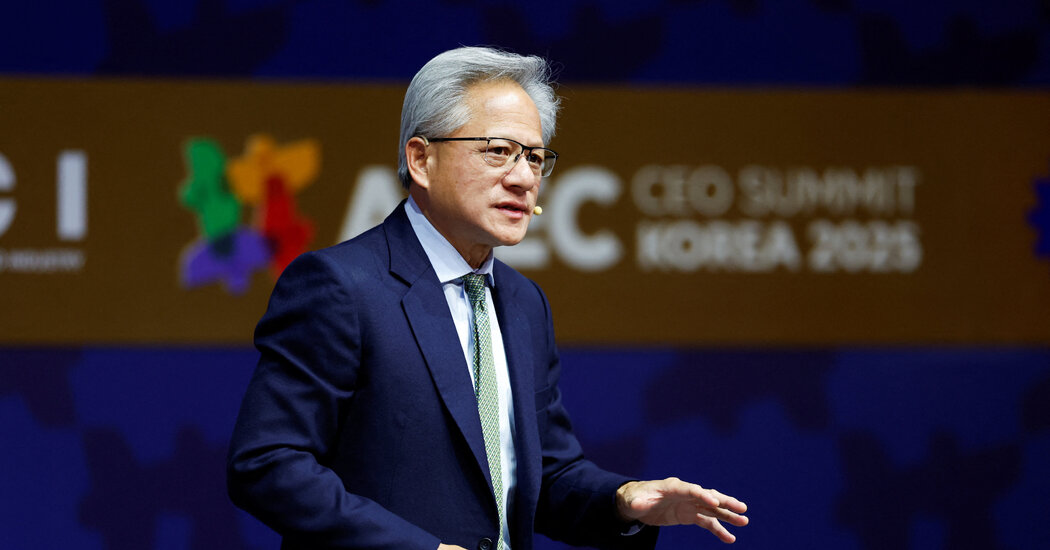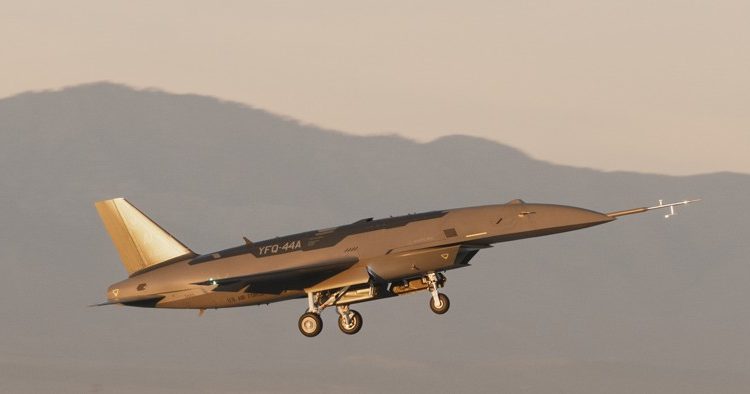Jensen Huang, the head of Nvidia, said again on Friday that he was eager for the Silicon Valley chip-making giant to resume selling advanced semiconductors in China, but expressed uncertainty about whether this week’s meeting between President Trump and China’s top leader, Xi Jinping, brought the company any closer to achieving that goal.
Mr. Huang arrived in South Korea shortly after the face-to-face summit of the two leaders in the country on Thursday. Mr. Trump told reporters that the leaders discussed semiconductors without addressing Nvidia’s most advanced A.I. technology. He added that Chinese officials would talk to Nvidia about “taking chips,” with the United States playing “referee.”
The remarks created confusion because Mr. Trump had suggested before the meeting that he would discuss Nvidia’s most powerful A.I. semiconductors with Mr. Xi, fueling speculation that the United States might ease restrictions limiting access to the technology.
“I don’t have any new insight from the meeting,” Mr. Huang said at a news conference on the sidelines of the Asia Pacific Economic Cooperation summit on Friday. “I hope that we will have new policies that allow Nvidia to go back into China, for China to welcome Nvidia back.”
Amid skyrocketing demand for technology infrastructure to power artificial intelligence systems, access to Nvidia’s chips has become a national security issue. Nvidia has been thrust into the middle of the economic feud between China and the United States.
Before Mr. Trump came into office, the U.S. government had already imposed rules to limit the sales of Nvidia’s most powerful chips in China. The Trump administration initially banned exports of Nvidia’s H20 chip, a downgraded version of the company’s Hopper chips, which were made particularly for China. It reversed that decision in July, when Mr. Trump said the H20 chip could be sold and that the federal government would take a 15 percent cut of that revenue.
But before Nvidia could move forward, China closed off the company’s access to its market. In July, China’s internet regulator summoned Nvidia to explain security risks associated with one of its chips. Beijing also discouraged Chinese companies from using the H20 chip, pushing them to try domestic alternatives.
Mr. Huang said Nvidia’s business in China is now at “zero,” after once holding near total market share.
He repeated some of his familiar arguments for why Nvidia should be allowed to sell chips in China. Some of America’s national security concerns were overblown because the Chinese military does not need Nvidia’s chips to develop A.I. technology, he said. And the United States risked conceding leadership in one of the most significant technological breakthroughs known to humanity by closing itself off from the vast Chinese market.
“It’s critically important for America to be back in the China market,” he said. “As an American company, we would like to see American A.I. technology be the global standard.”
He argued that Nvidia would be “very beneficial” for China, as its technology is superior to that of Chinese competitors. He was careful to avoid disparaging the Chinese technology giant Huawei, which has developed its own A.I. semiconductor technology, but emphasized Nvidia’s superiority.
“We are miles ahead, but it is foolish to underestimate the might of China,” he said.
Since arriving in South Korea, Mr. Huang has been on a nonstop charm offensive. On Thursday, his night out in Seoul with two of the country’s most prominent businessmen, Samsung Electronics’ executive chairman, Lee Jae-yong, and Hyundai Motor Group’s executive chairman, Euisun Chung, was covered with paparazzi-like fanfare. Swarms of reporters filmed them at a restaurant eating fried chicken and drinking beer.
At his much anticipated speech at the summit on Friday, Mr. Huang ditched his trademark black leather jacket for a navy blue suit. Then, Nvidia announced that South Korea and a handful of its biggest companies, including Samsung and Hyundai Motor, had agreed to purchase more than 250,000 specialized computing chips to advance the country’s efforts in developing A.I. technology.
The Nvidia chips will be used for next-generation data centers as well as to propel South Korea’s efforts to build so-called sovereign A.I., a nationalized effort to make the breakthrough technology available to local businesses and institutions that cannot afford to build their own infrastructure.
Later at a news conference, he handed out snacks to journalists and signed the white dress shirt of a reporter with a black marker. Even as his security detail tried to usher him out of the venue, swarms of reporters begged Mr. Huang for selfies.
Daisuke Wakabayashi is an Asia business correspondent for The Times based in Seoul, covering economic, corporate and geopolitical stories from the region.
The post Nvidia Uncertain if Return to China Is Closer After Trump-Xi Meeting appeared first on New York Times.




